Global animal welfare organization FOUR PAWS has rescued two female Asiatic black bear cubs that were confiscated by the authorities in Lai Chau province in northwestern Vietnam on May 13th. The authorities arrested a man carrying a suspicious looking sack that he was holding the bear cubs in. He confessed to having caught them in a cardamom field and wanted to sell them.
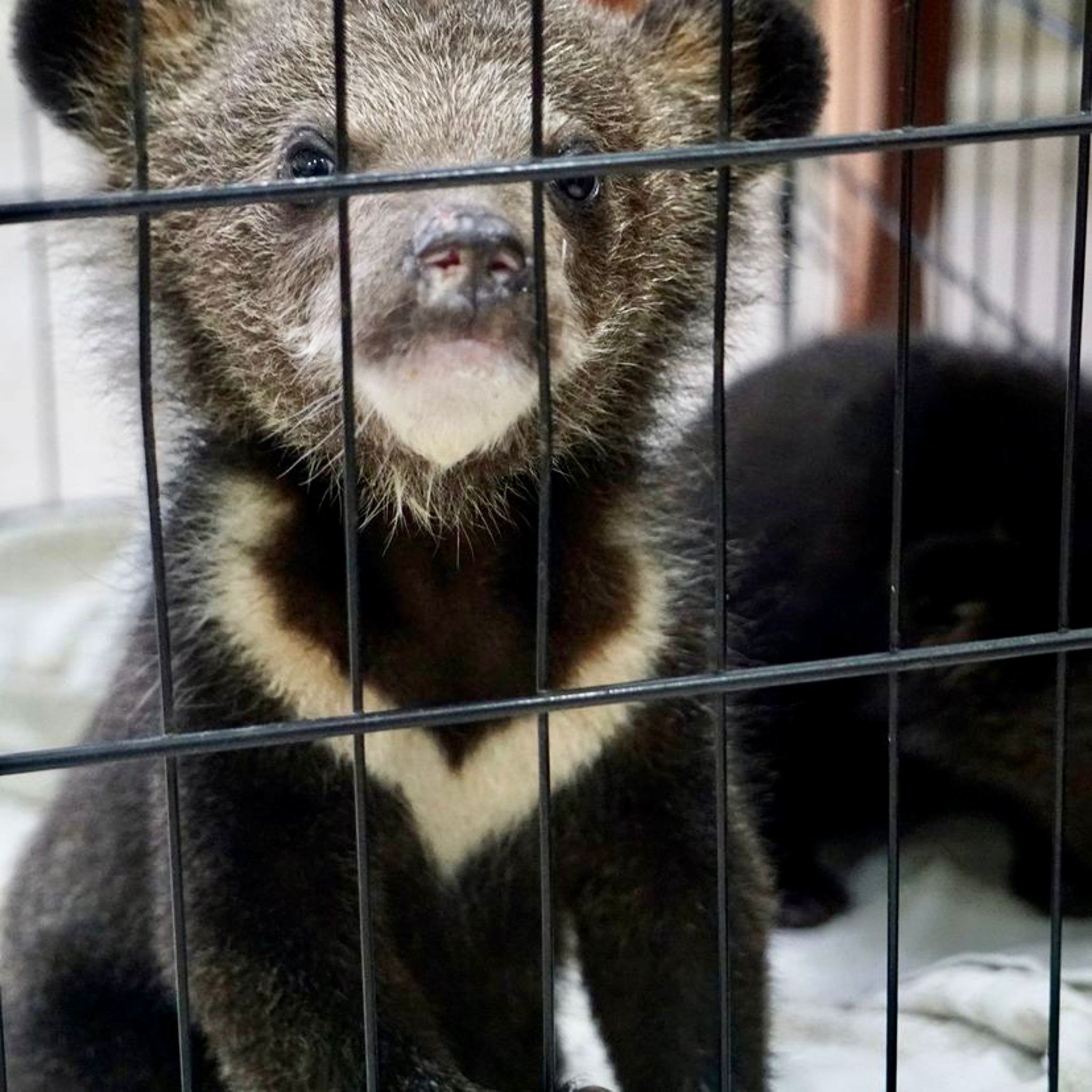
The authorities asked FOUR PAWS to take the cubs into its care at BEAR SANCTUARY Ninh Binh. The cubs, named Bé and Em, who are most likely siblings, have arrived safely at their new home and will receive all the care they need to grow into healthy bears. FOUR PAWS welcomes the efforts of the Vietnamese authorities to enforce existing laws and combat wildlife crime.
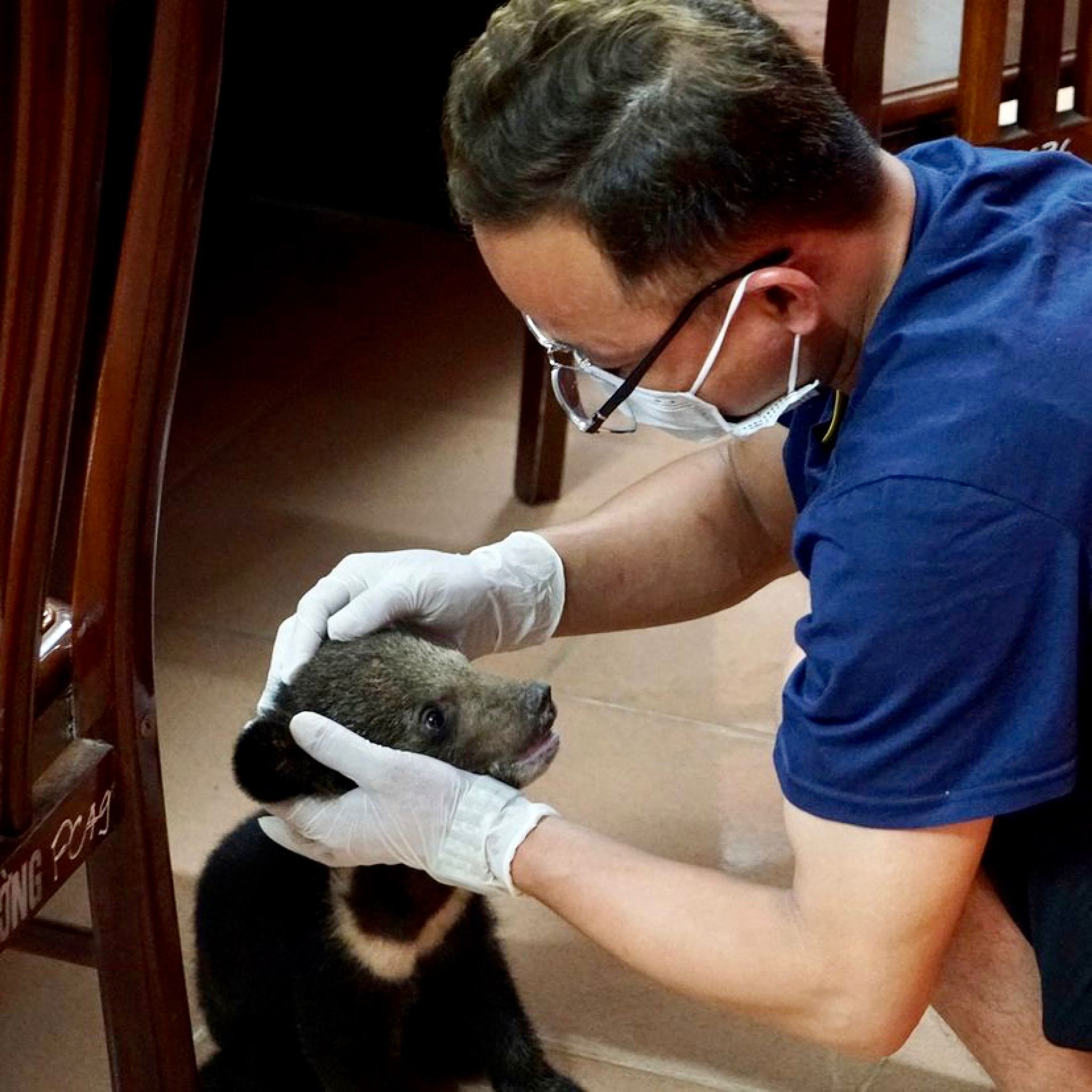
A FOUR PAWS team made its way from BEAR SANCTUARY Ninh Binh to Lai Chau province in an eleven-hour journey. After checking on the bear cubs and a long journey back, they arrived at the sanctuary.
“Both cubs are very small, only weighing 2.4 and 3.3. kilograms, but otherwise they are in good health. We will provide them with an appropriate diet so they can grow up healthy. At the moment they mostly eat, play, and sleep but we can already see their individual personalities showing,” said Emily Lloyd, Animal Manager at BEAR SANCTUARY Ninh Binh. “Bé is very playful and confident, while Em for now is more reserved but nonetheless curious. We commend the authorities for stepping in and making sure these animals do not have to suffer any further.”
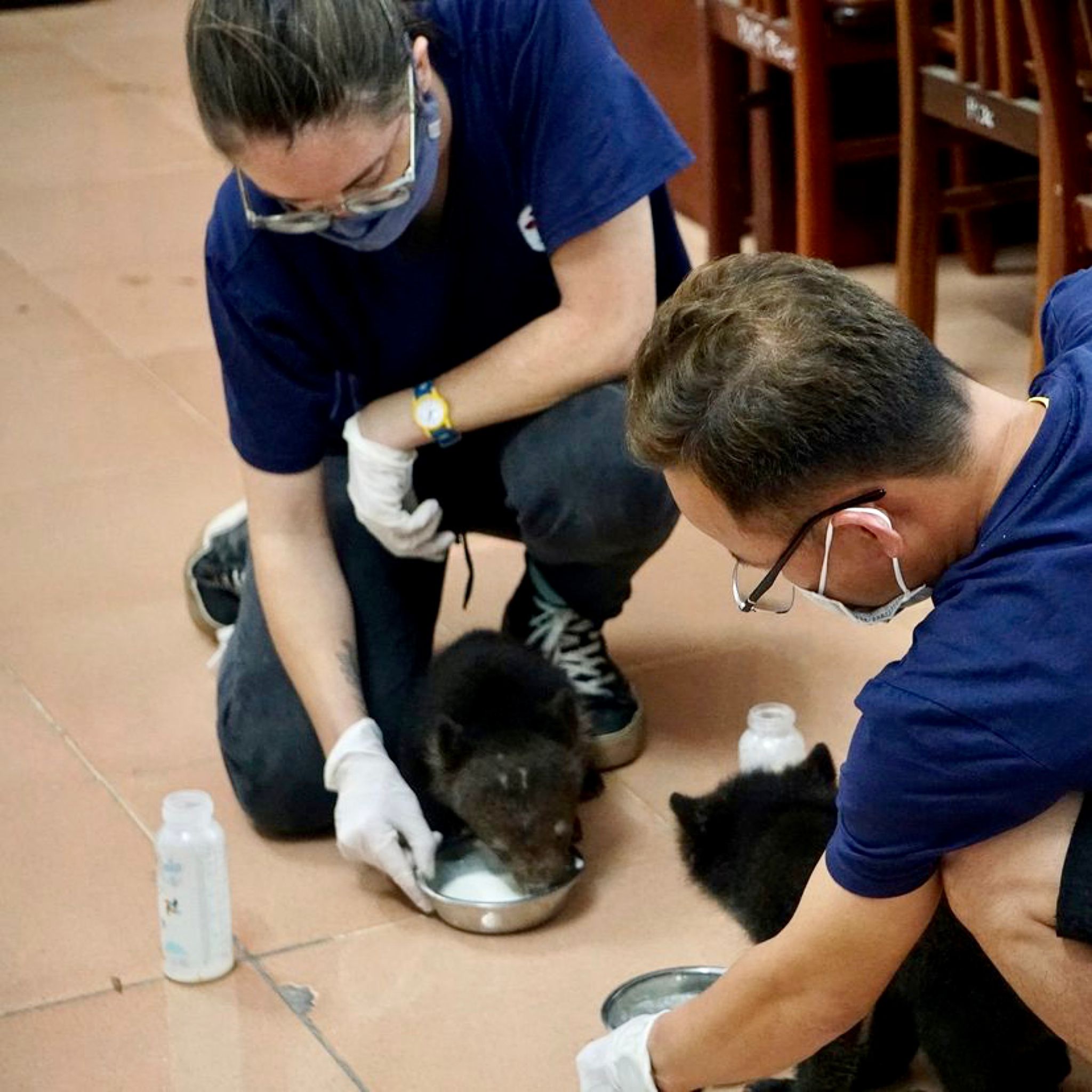
In recent years, the team at BEAR SANCTUARY Ninh Binh has hand-raised five bear cubs rescued from similar circumstances as Bé and Em and are therefore highly experienced with the needs of such young bears. Sadly, releasing the bear cubs back into the wild is not possible. There are no safe wild places in Vietnam and no projects set up to reintroduce bear cubs into the wild. Moreover, the preparation of cubs for life in the wild is a huge undertaking. At BEAR SANCTUARY Ninh Binh, they will have a life-long and species-appropriate home among conspecifics.
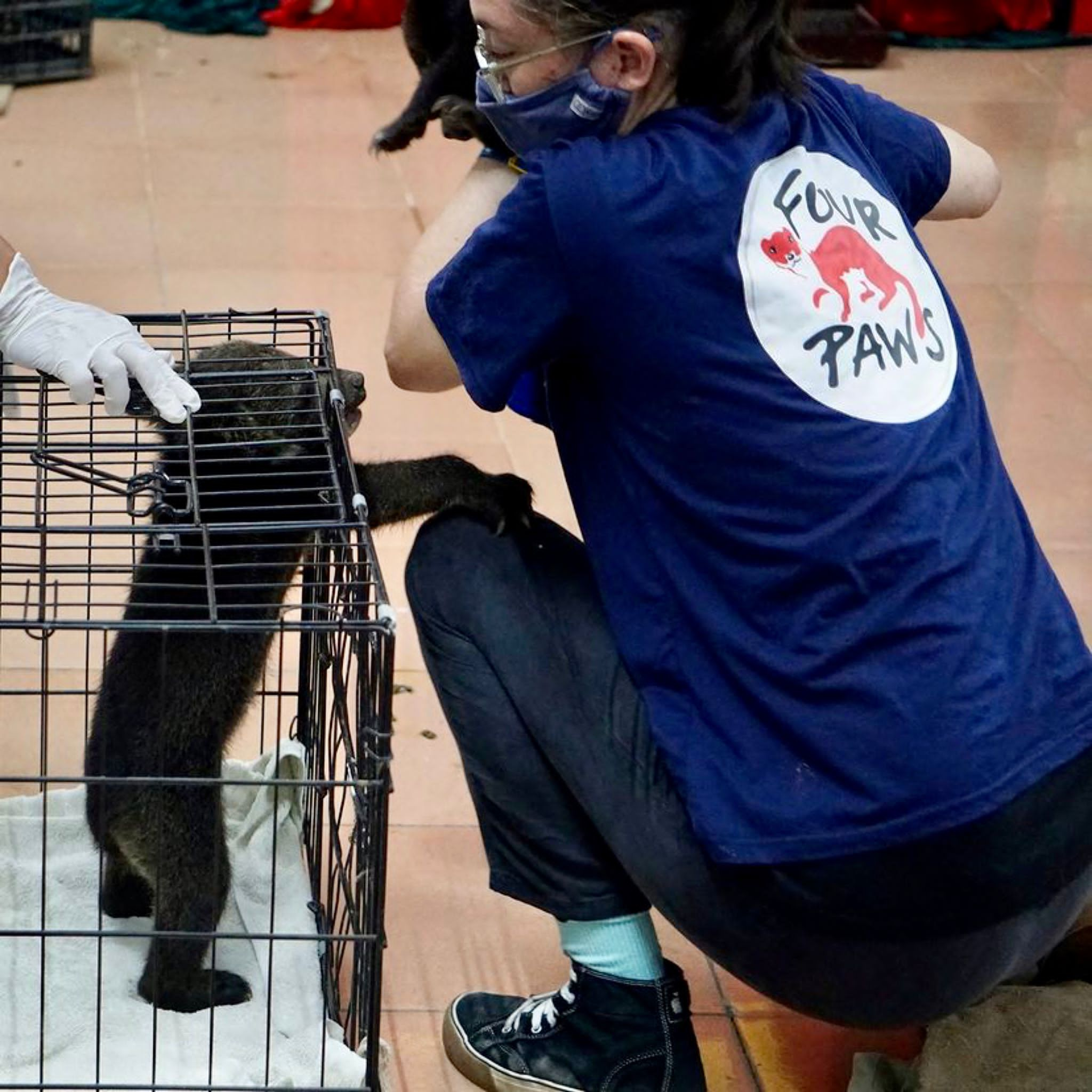
The legal and illegal wildlife trade in Vietnam is a billion-dollar industry which sees animals horrifically taken from the wild and bred in captivity to be sold in markets, restaurants, online, and used in pseudo-traditional medicines throughout the country.
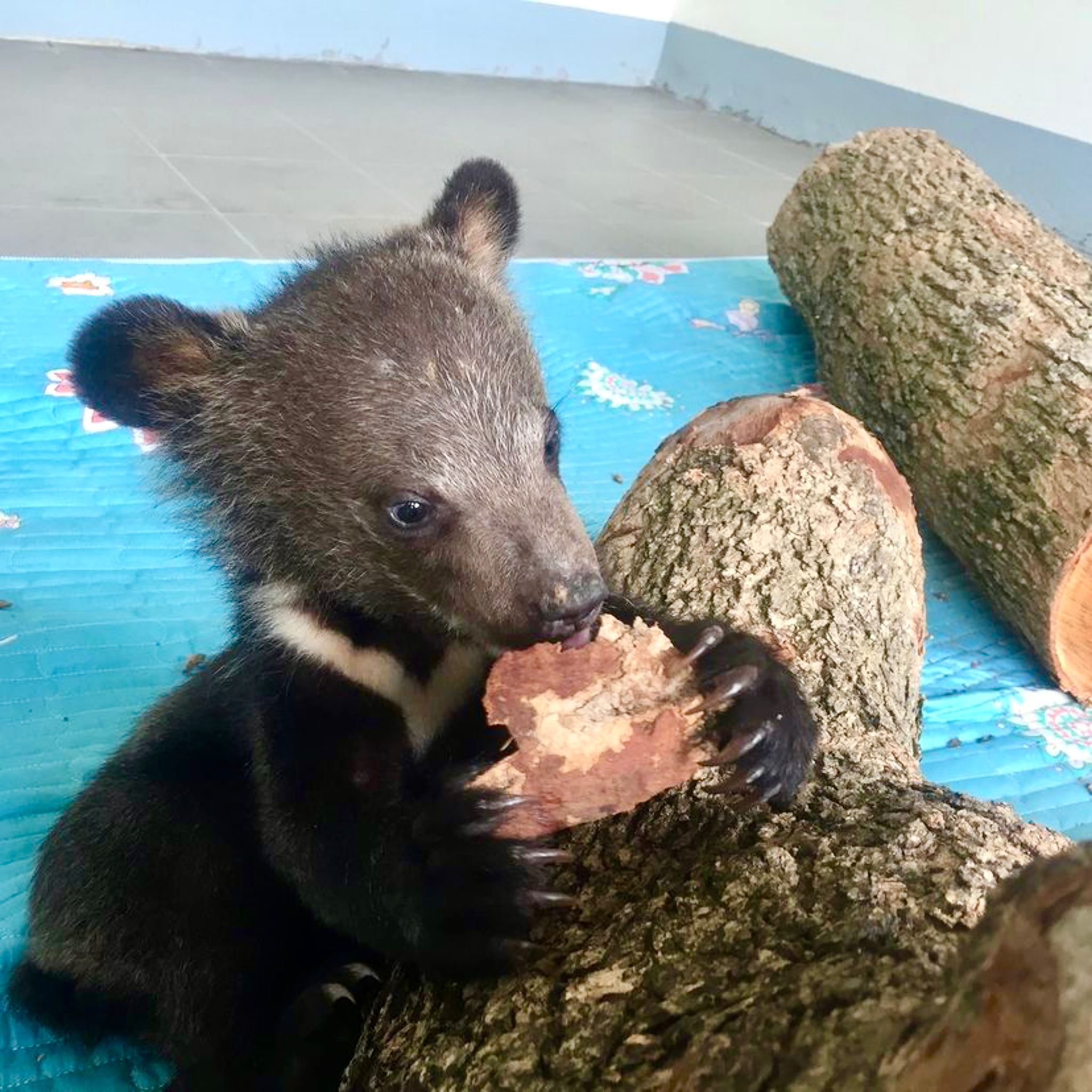
Since 2005, it is forbidden by law in Vietnam to hunt, trap, possess, kill, sell, or advertise live bears or bear products in an effort not only to tackle the illegal wildlife trade but mainly to end bear farming. However, while the bear bile industry is declining, the illegal wildlife trade is flourishing and millions of wild animals like Bé and Em continue to suffer.
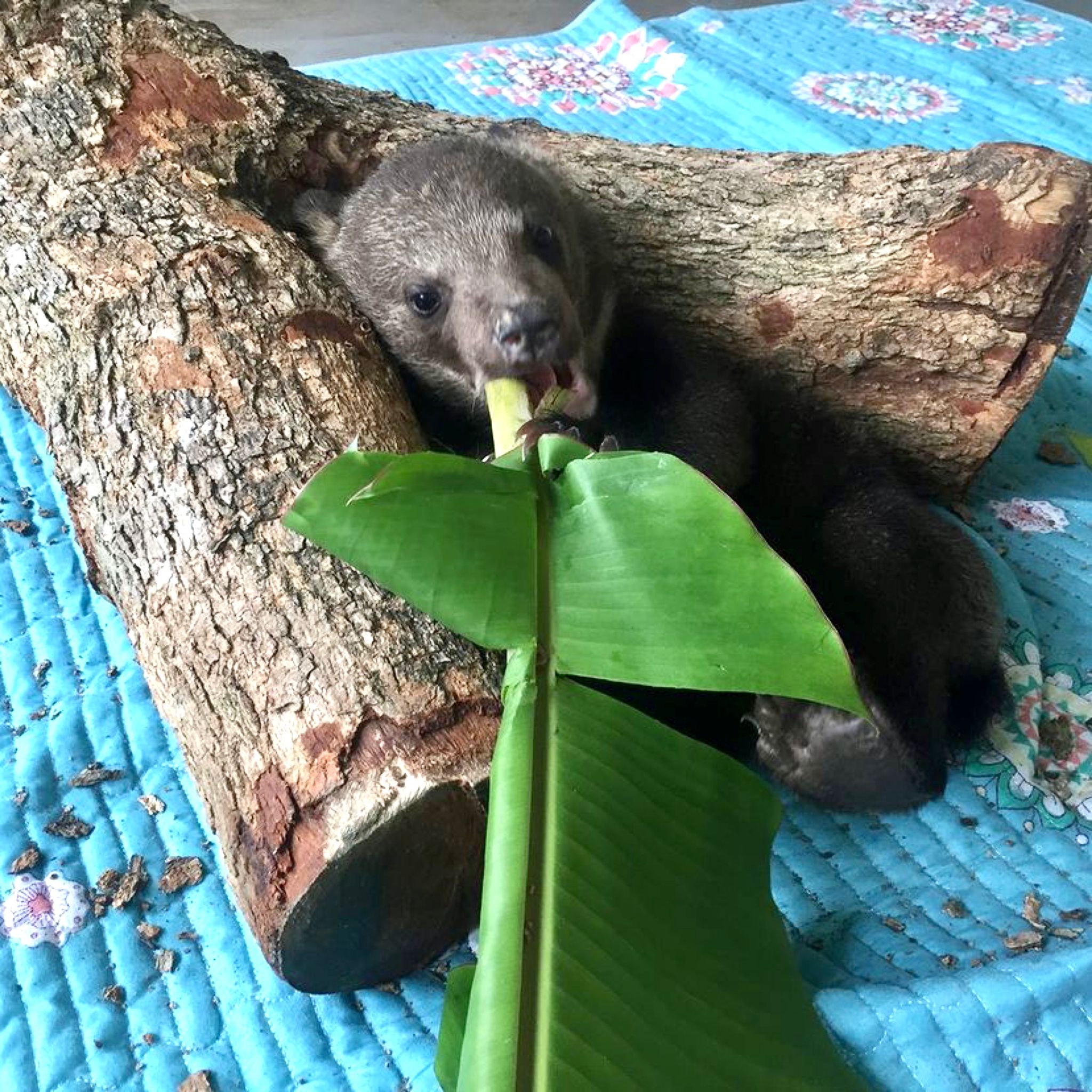
Due to a penal code revised in 2018 illegal wildlife trafficking can now lead to a maximum punishment of 15 years in prison, depending on the severity of the crime. Prison sentences are becoming the new norm for court trials for serious wildlife crime in Vietnam, and 43 offenders have been convicted for five or more years between 2018 and 2020.